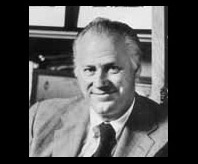Steroid Hall of Shame | Balco Timeline | Steroid Timeline | Mitchell Report




Home Page
Steroid Overview
Steroid Timeline: From Germany to USA
Commissioners and Controversy
- Kenesaw Landis
- Albert Chandler
- Ford Frick
- Colonel Eckert
- Bowie Kuhn
- Peter Uberroth
- A. Bartlett Giamatta
- Francis Vincent
- Alan Selig
Balco Timeline
Mitchell Report (409 pg pdf)
2002-06 Collective Bargaining Agreement (pdf)
2007-11 Collective Bargaining Agreement (pdf)
Bowie Kent Kuhn
Fifth Commissioner of Major League Baseball
1969-1984
After the William Eckert debacle, it was highly incumbent upon the major league baseball owners to make the correct decision regarding the appointment of the next commissioner. They did so when they selected Bowie Kuhn, an attorney who had successfully served as major league baseball's legal counsel for nearly 20 years.
During his 15-year tenure as commissioner, Bowie Kuhn was confronted with a host of unprecedented baseball-related issues and challenges, including player strikes, the end of the reserve clause, the first television contracts, and the first nighttime World Series game. Despite having to grapple with these complicated issues, it is in no small measure due to Kuhn's intelligence, managerial talents, and baseball acumen that attendance at major league games reached all-time highs.
In addition, Kuhn had to deal with an environment in which baseball players were becoming increasingly associated with illegal drug use and organized gambling, as in the following examples:
• Kuhn barred baseball legends Willie Mays (1979) and Mickey Mantle (1983) from baseball because of their involvement with casino promotions.
• In 1983, players Willie Aikens, Jerry Martin, Vida Blue, and Willie Wilson pled guilty to the misdemeanor charges of attempted cocaine possession. Each served three months in jail. Upon their release, Kuhn suspended them from baseball for one year without pay. (Although some of the sentences were later modified in arbitration, Kuhn's actions clearly defined his stance as one who would neither condone nor forgive player involvement in illegal activities.)
• Pitcher Steve Howe had completed his first drug treatment in 1983, only to fail two drug tests. Kuhn suspended him from baseball after each failure.
• In 1984, Braves pitcher Pascual Perez was arrested in the Dominican Republic for cocaine possession. Upon his return to the U.S., Kuhn suspended him for one month. (Perez filed a grievance with the player's union, and his punishment was subsequently overturned.)
Bowie Kuhn maintained a firm stance regarding baseball's drug-related problems. He compiled and implemented the first formal set of major league baseball policies and procedures that focused on drug-related issues. Although some considered his efforts at dealing with the problem to be watered-down, ineffective, and somewhat vague, it cannot be denied that Kuhn's attempts to bring the problem under control would serve as the baseline for subsequent efforts, on the part of his successors, to maintain the integrity and image of the game.
Other outstanding examples of Bowie Kuhn's gutsy performance as commissioner involved his rejection/voiding of attempted player-for-player trades and player-for-cash deals that he considered to be inimical to the best interests of major league baseball. While his actions vis-ˆ-vis these attempted transactions certainly rankled the owners of the teams involved, no one could deny Kuhn's justification and motivation in wanting to maintain a "level playing field" for all major league teams.
In 1967, the International Olympic Committee had banned the use of steroids. In 1972, the IOC created the most rigid drug testing program ever known in sports. These events were not lost on Bowie Kuhn, who, throughout his watch, maintained a keen interest in the progression of drug use in all organized sports. It is interesting to note that the topic of steroid usage in major league baseball never arose during Bowie Kuhn's tenure; hence, it was not addressed during his 1969-1984 interval.
Bowie Kuhn must be regarded as one of the finest major league baseball commissioners. He was the right man, chosen at the right time, do to the right job.
This website & Syringe Logo are owned and copywritten by Allan Doherty 2006 - 2009.